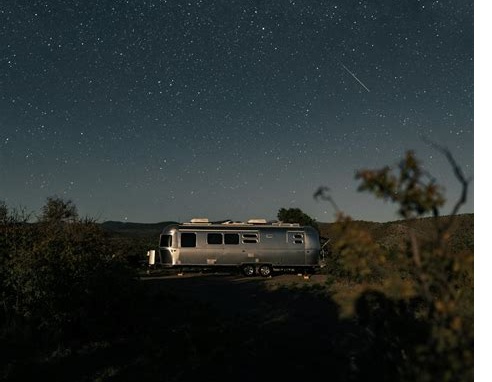TravelBestForyYou.com
How to Plan a Vacation That Includes Stargazing Opportunities: A Cosmic Escape
Let’s be honest, staring at a screen all day isn’t exactly conducive to appreciating the vast, glittering canvas above us. We’ve become a generation increasingly detached from the night sky, our urban lives drowning out the celestial symphony.
But what if I told you reclaiming that connection isn’t just possible, but profoundly enriching? Planning a vacation that includes stargazing opportunities is more than ticking off a bucket list item; it’s a journey into awe, wonder, and a profound sense of perspective.
Did you know that light pollution obscures the Milky Way for over 80% of the world’s population? That’s a staggering statistic, highlighting the urgency of seeking out darker skies. This isn’t just about pretty pictures; it’s about reconnecting with our place in the universe, a humbling experience that can leave you feeling utterly revitalized.
This article isn’t your typical travel guide; it’s a cosmic road map to escaping the everyday and embracing the extraordinary. We’ll delve into practical tips, share hidden gems, and even confront some controversial viewpoints – because, let’s face it, the pursuit of perfect darkness can be surprisingly complex.
Choosing Your Celestial Sanctuary: Dark Skies, Bright Ideas
Forget overcrowded tourist traps; we’re hunting for dark sky reserves, places where the night truly comes alive. The International Dark-Sky Association (IDA) certifies locations dedicated to preserving night skies – these are your holy grails.
Websites like Light Pollution Map can help you locate areas with minimal light pollution. Consider factors beyond just darkness: accessibility, lodging options, and local activities to round out your trip. My last stargazing trip to Cherry Springs State Park in Pennsylvania was absolutely magical; seeing the Milky Way stretch across the entire sky was like witnessing a cosmic river flow. But be warned, popular dark sky locations fill up fast, especially during meteor showers! Booking in advance is paramount.
Gear Up for Galaxy Gazing: Beyond the Naked Eye
While the naked eye can offer breathtaking views, investing in some equipment can elevate your experience. Binoculars are a great starting point; they provide magnified views of constellations and nebulae. A telescope allows for even deeper exploration, revealing the intricate details of planets and galaxies.
Don’t forget a star chart or a stargazing app to identify celestial objects. And let’s not overlook the essentials: a comfy chair, warm clothing (nights can get chilly!), and a thermos of hot chocolate to ward off the evening chill. Remember, patience is key; sometimes the most rewarding sights take time to appear.
Astrophotography: Capturing the Cosmos
Astrophotography has become increasingly accessible, thanks to advancements in camera technology. But mastering it takes practice and patience! A DSLR camera with a wide-angle lens is a great place to start, coupled with a sturdy tripod.
Learning basic photography techniques, like long-exposure photography, is vital for capturing the faint light of stars and galaxies. Online resources and workshops can greatly assist in this journey; the learning curve is steep, but the results are overwhelmingly rewarding.
I personally love the challenge of transforming the night sky into stunning images that others can appreciate. It is like holding a piece of the universe in your hands, a perfect reminder of the wonder of the night.
Beyond the Stars: Experiencing the Night
A stargazing vacation isn’t solely about celestial observation; it’s about immersing yourself in the night itself. Many dark sky parks offer guided tours and educational programs that provide further insights into astronomy and the natural world.
Listen to the sounds of nature, feel the cool night air on your skin, and breathe in the crisp, unpolluted atmosphere. Let the quietude of the night wash over you. Engage with your surroundings, away from the constant distraction of the technological world, and discover inner peace. It’s a transformative experience.
Planning Your Trip: Logistics and Considerations
Planning your stargazing vacation involves more than just picking a location. Consider the time of year; certain times offer better viewing conditions for specific celestial events. Meteor showers, for instance, provide spectacular displays of shooting stars.
Check the moon phase; a full moon washes out fainter stars, while a new moon offers optimal darkness. Factor in travel time, accommodation costs, and any necessary permits or fees. And remember, flexibility is vital; weather conditions can drastically impact your viewing experience. It is wise to have alternate plans in place, ensuring your trip can still be considered a grand success even if the weather conditions are not perfect.
Controversial Opinion: Is Dark Tourism Ethical?
The growing popularity of dark sky tourism raises ethical questions. While it promotes awareness of light pollution and the importance of preserving dark skies, it also presents challenges. Increased tourism can strain local resources and disrupt the very environment it aims to protect.
This means that mindful and sustainable tourism is critical. We need to consider our impact and work towards responsible travel habits that minimize disturbance. Support local businesses, dispose of waste responsibly and, perhaps most importantly, keep light pollution to an absolute minimum.
Conclusion: Reach for the Stars, Literally
Planning a vacation that includes stargazing opportunities is more than just a trip; it’s a journey of self-discovery, a retreat into the awe-inspiring expanse of the cosmos. From choosing the perfect dark sky location to mastering astrophotography, each step presents a chance to reconnect with nature and our place within the grand scheme of the universe.
However, we need to remember that this privilege comes with a responsibility; we need to be mindful and ethical tourists, ensuring the preservation of these precious dark sky reserves for generations to come. So, go ahead, reach for the stars; the universe awaits.

